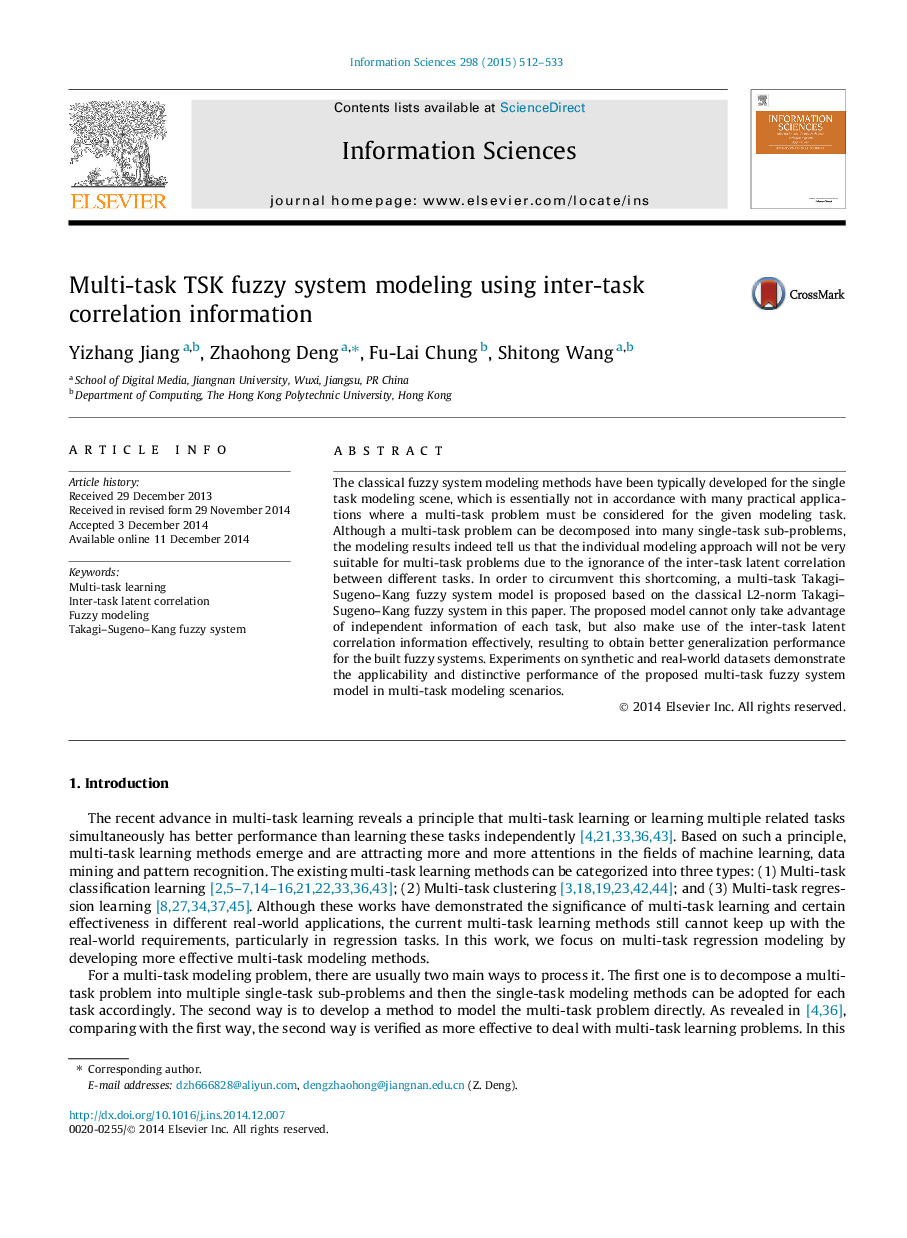| Article ID | Journal | Published Year | Pages | File Type |
|---|---|---|---|---|
| 393144 | Information Sciences | 2015 | 22 Pages |
The classical fuzzy system modeling methods have been typically developed for the single task modeling scene, which is essentially not in accordance with many practical applications where a multi-task problem must be considered for the given modeling task. Although a multi-task problem can be decomposed into many single-task sub-problems, the modeling results indeed tell us that the individual modeling approach will not be very suitable for multi-task problems due to the ignorance of the inter-task latent correlation between different tasks. In order to circumvent this shortcoming, a multi-task Takagi–Sugeno–Kang fuzzy system model is proposed based on the classical L2-norm Takagi–Sugeno–Kang fuzzy system in this paper. The proposed model cannot only take advantage of independent information of each task, but also make use of the inter-task latent correlation information effectively, resulting to obtain better generalization performance for the built fuzzy systems. Experiments on synthetic and real-world datasets demonstrate the applicability and distinctive performance of the proposed multi-task fuzzy system model in multi-task modeling scenarios.
